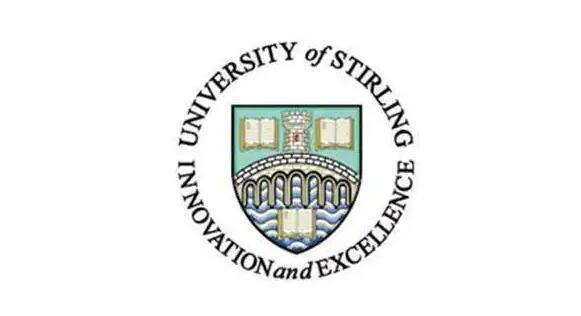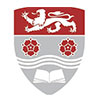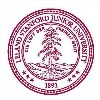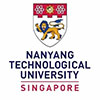英国斯特灵大学博士后—细菌的基因组流行病学

英国斯特灵大学博士后—细菌的基因组流行病学
Postdoctoral Research Fellow
University Of Stirling
Description
Postdoctoral Research Fellow Apply Post Details
Full time Fixed term for 12 months
The closing date for applications is midnight on Sunday 28 August 2022. Interviews are expected to take place Monday 05 September 2022.
There is an expectation that work will be undertaken in the UK.
For the purposes of sponsorship, this is a postdoctoral role under SOC code 2119.
The University of Stirling recognises that a diverse workforce benefits and enriches the work, learning and research experiences of the entire campus and greater community. We are committed to removing barriers and welcome applications from those who would contribute to further diversification of our staff and ensure that equality, diversity and inclusion is woven into the substance of the role. We strongly encourage applications from people from diverse backgrounds including gender, identity, race, age, class, and ethnicity.
The project is part of an FHF-Norway funded project focussed on the genomic epidemiology and phage based prevention of salmon associated Pasteurella. The aims of the project are to explore the genomic epidemiology of the bacteria and to identify bacteriophage capable of reducing the bacterial load during key farming interventions. This project will help support the aquaculture industry in the reduction of the use of antibiotics by providing an alternative approach for reducing bacterial loading in culture systems. This is a multidisciplinary project, including specialists in aquaculture, fish health and microbiome, phage discovery and phage therapy. More details can be found by following this link https: // www. fhf.no/prosjekter/prosjektbasen/901707/
Norway is one of the world's largest producers of Atlantic salmon ( Salmo salar ) and together with Scotland annual production is over 1 million tonnes. Despite the availability of many vaccines bacterial infection can cause significant disease issues. Recently, phage based treatments have been developed for use in the pig and poultry farming sectors representing a significant step change in terms of reducing anti-biotic use. This project aims to move this technology into aquaculture by focusing on the bacterial disease pasteurellosis.
The overall research aims for the PDRA within this project are to characterise a large collection of samples collected from the near shore around Scotland. To develop and perform abs-qPCR assays to facilitate the identification and quantification of closely related Pasteurella species. To investigate the microbiome on mucosal surfaces of infected and naïve salmon using WGS and 16S amplicon sequencing. The post will be within the Institute of Aquaculture, University of Stirling.
Description of Duties
Duties will involve:
Coordinating the maintenance and curation of bacterial culture collection.
Processing of samples for molecular and biochemical analyses including rt- QPCR and ELISA.
Using bioinformatics pipelines to support large-scale genomics and proteomic profiling data that will include WGS and MALDI-TOF MS.
Developing and testing different statistical methods and classification algorithms with the omics-data generated on bacteria isolates.
Coordinating research trials with all research partners.
Preparing and delivering clear, concise and accurate reports.
Assist in the supervision of PGR research projects.
Other duties as necessary.
Key Competencies and Attributes
Strong foundation in the development and application of nucleic acid and/or protein-based assays.
Knowledge and experience in the analysis of high-throughput data from biological systems.
Direct experience with NGS platforms, library construction, metatranscriptomics, metagenomics and amplicon sequencing
Knowledge in statistical methods in the context of biological systems.
Experience of fish disease, histological assessment, immunological response identification methods and analytical laboratory techniques
Excellent inter-personal and communication skills.
An ability to work both independently and in a team.
Essential Criteria
A PhD in the field of Microbiology or Molecular Biology, relevant to fish disease
Experience of fish health with emphasis upon mucosal biology or disease diagnosis research fields
Experience in sequencing library preparation and the generation, analysis and management of omics-data
Evidence of being able to work as part of a team
Evidence of excellent oral and written communication skills
Experience in writing papers for publication and report-writing
Time management skills including ability to prioritise workload
Trustworthy and reliable
Desirable Criteria
Experience of working in diagnostic aquaculture research
Experience in developing molecular tools for identifying host responses with emphasis upon development of nucleic acid purification and QPCR methodologies
Evidence of working as part of a multidisciplinary team
Experience in novel, non-antibiotic treatments for fish pathogens
Behaviours and Competencies
The role holder will be required to evidence that they can meet the qualities associated with the following behavioural competencies, as detailed within the AUA Competency Framework.
Managing self and personal skills Being aware of your own behaviour and mindful of how it impacts on others, enhancing personal skills to adapt professional practice accordingly.
Delivering excellent service Providing the best quality service to external and internal clients. Building genuine and open long-term relationships in order to drive up service standards.
Finding solutions Taking a holistic view and working enthusiastically to analyse problems and to develop workable solutions. Identifying opportunities for innovation.
Embracing change Being open to and engaging with new ideas and ways of working. Adjusting to unfamiliar situations, shifting demands and changing roles.
Using resources effectively Identifying and making the most productive use of resources including people, time, information, networks and budgets.
Engaging with the wider context Enhancing your contribution to the organisation through an understanding of the bigger picture and showing commitment to organisational values.
Developing self and others Showing commitment to own ongoing professional development. Supporting and encouraging others to develop their professional knowledge, skills and behaviours to enable them to reach their full potential.
Working together Working collaboratively with others in order to achieve objectives. Recognising and valuing the different contributions people bring to this process.
Achieving Results Consistently meeting agreed objectives and success criteria. Taking personal responsibility for getting things done.
About Us
The Faculty of Natural Sciences (FNS) encompasses the Divisions of Biological and Environmental Sciences, Computing Science and Mathematics, Psychology and the Institute of Aquaculture. FNS is a distinctive academic arena where new fundamental understandings of the complex and challenging inter-relationships between human behaviours, technologies, biological and environmental systems are created, explored and tested. Results of REF2021 confirmed that 80% of our research is world leading and internationally excellent. It is supported through UK Research Councils, European Union and a range of research charities We work with businesses and public service organisations both at home and overseas to achieve direct and positive outcomes for society across a range of critical problems. Recent success in the 2018 City deal is leading to a substantial investment in new infrastructure linked to the Faculty including a £17 million investment for a new Institute of Aquaculture and Global Aquatic Food Security facility and a £5 million investment for Scotland's International Environment Centre.
Institute of Aquaculture
Established in 1971, the Institute of Aquaculture (IoA) is the leading international centre in its field and the largest of its kind in the world. The Institute of Aquaculture has research and teaching facilities on campus including temperate and tropical aquaria. Off campus, at Buckieburn, the IoA has its freshwater research facility and, at Machrihanish on the Kintyre peninsula, its marine research facility. The entire Institute brings together cross-disciplinary, world class researchers in breeding and physiology, genomics and selection, nutrition, emerging aquatic diseases, immunology, parasitology, welfare and behaviour, environmental management, society and technology, and policy and governance our research and training focuses on critical questions relating to strategies for sustainable aquaculture.
The University
Ranked among the UK's 40 best universities in the Complete University Guide, the University of Stirling is committed to providing education with a purpose and carrying out research which has a positive impact on communities across the globe – addressing real issues, providing solutions and helping to shape society.
Stirling is 4th in Scotland and 43rd in the UK for research impact, with 87% of its research having an outstanding or very considerable impact on society – and more than 80% rated either world leading or internationally excellent (Research Excellence Framework 2021). Interdisciplinary in its approach, Stirling's research informs its teaching curriculum and facilitates opportunities for knowledge exchange and collaboration between staff, students, industry partners and the wider community.
The University of Stirling is ranked among the top 20 UK universities for student satisfaction (National Student Survey) and top 10 in the UK for postgraduate student experience (Postgraduate Taught Experience Survey), and has an overall five-star rating in the QS Stars University Ratings.
More than 17,000 students study with the University of Stirling globally, with over 120 nationalities represented on its scenic central Scotland campus alone. The campus – also home to 1,700 staff – has its own loch and castle, and a recent multi-million-pound redevelopment has delivered modern, flexible, and digitally connected study and social spaces at the heart of campus, including enhanced student support and retail and catering outlets.
The University has twice been recognised with a Queen's Anniversary Prize – the first for its Institute for Social Marketing and Health (2014) and the second for its Institute of Aquaculture (2019). Stirling is Scotland's University for Sporting Excellence and its recently redeveloped world-class facilities provide the perfect training environment for the University's sports scholars – many of whom compete at the highest level, including at the Olympics and Commonwealth Games – and for students, staff, and the wider community.
As a signatory to the £214 million Stirling and Clackmannanshire City Region Deal, the University is driving productivity and inclusive growth across the Forth Valley, and beyond. Through pioneering collaborative solutions to global challenges, researchers are putting innovation, skills, and partnership at the heart of a sustainable economic recovery.
www. stir.ac.uk @stiruni

















